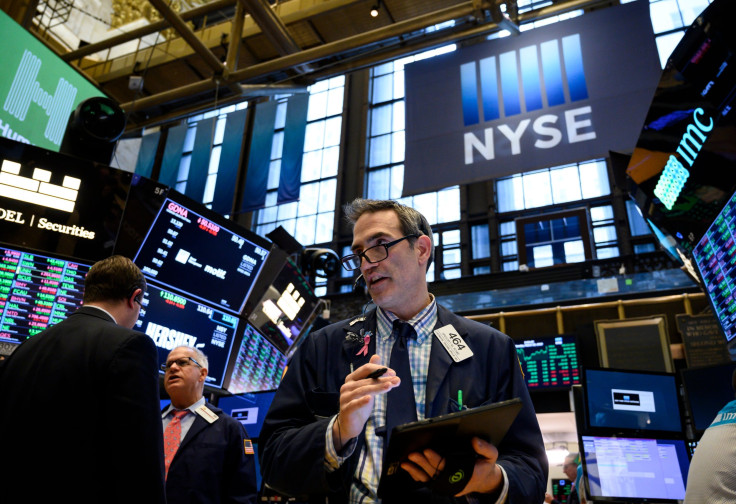Pre Stock Market News: Lower Open Likely For US Market, Oil Zooms

Lower open likely for Wall Street Monday after important U.S. stock futures looked down on Monday morning.
It was reflecting the Wall Street investors’ anxieties that surging oil prices in the aftermath of the attack on Saudi Arabia’s oil facilities will slow down global economic growth.
At 7 a.m. ET, the Dow futures hinted a negative open of more than 100 points. The futures on the S&P 500 and Nasdaq were also down.
Dow futures will be facing the first decline after a bull run of nine days.
President Donald Trump said the U.S. would use oil from its Strategic Petroleum Reserves to keep the market “well-supplied.”
Trump also warned that the United States was “locked and loaded” to respond to the attacks on Saudi oil plants.
Calling it the “largest supply shock ever” Bob Ryan, chief commodities strategist at BCA Research said the Saudi “attack could tighten the market significantly if the outage is indeed weeks and not days.”
No data releases are lined up for Monday.
Oil price hits a record high
The oil price surged Monday with Brent crude making the biggest intra-day percentage gain after the Gulf War in 1991.
The attack on Saudi Arabian oil facilities wiped out the equivalent of 5 percent of global supply. Benchmark Brent crude futures jumped 19.5 percent to $71.95 per barrel, the biggest intraday jump since Jan. 14, 1991.
U.S. West Texas Intermediate (WTI) futures soared 15.5 percent to $63.34 a barrel since June 22, 1998.
After the attack on Aramco’s processing facilities at Abqaiq and Khurais, there is no word yet when full output will be restored.
According to the Reuters report, the return to full capacity could take ‘weeks, not days.”
Aramco is attempting to restore a third of its crude output by Monday after the attacks, according to a report by the Wall Street Journal.
Strategists at Commonwealth Bank of Australia also said the surge crude prices will be temporary. ANZ Research said Brent crude will test the $70 per barrel mark in the short term.
The U.S has alleged that the attack on the plants came from Iran and suspected use of cruise missiles although initial reports said the attacks came from Yemen.
Asia markets mixed
Stocks in the Asia Pacific showed a mixed platter on Monday. Mainland Chinese stocks were almost flat. The Shanghai Composite was hovering around 3,030.75.
At the Hong Kong stock market, the Hang Seng index lost nearly 1 percent at the final hour of trading.
According to stock market news, Australia’s ASX 200 closed marginally higher. South Korea’s Kospi rose 0.64 percent.
Japan’s markets were closed on Monday due to a holiday.
According to share market news, India’s BSE Sensex closed 0.7 percent lower. The NSE Nifty50 also ended in red and closed 0.65 percent lower.
European stocks traded lower Monday after investors became cautious after the escalation of tensions in the Middle East. The trading view on pan-European Stoxx 600 showed a slippage of 0.5 percent in the phase of the trade.
Travel and leisure stocks had been hit after reports appeared that the World Trade Organization (WTO) gave the go-ahead to the U.S. to impose penal tariffs on the EU over airline subsidies.
The gold price jumped on Monday. The surge was more than one 1 percent after the demand for safe-haven assets spiked following the Saudi attacks.
Spot gold zoomed 1.2 percent higher at $1,506.87 per ounce, as of 0050 GMT marking the biggest one-day percentage gain since Aug. 23. The U.S. gold futures gained 1.1 percent to $1,516.10.
© Copyright IBTimes 2025. All rights reserved.





















